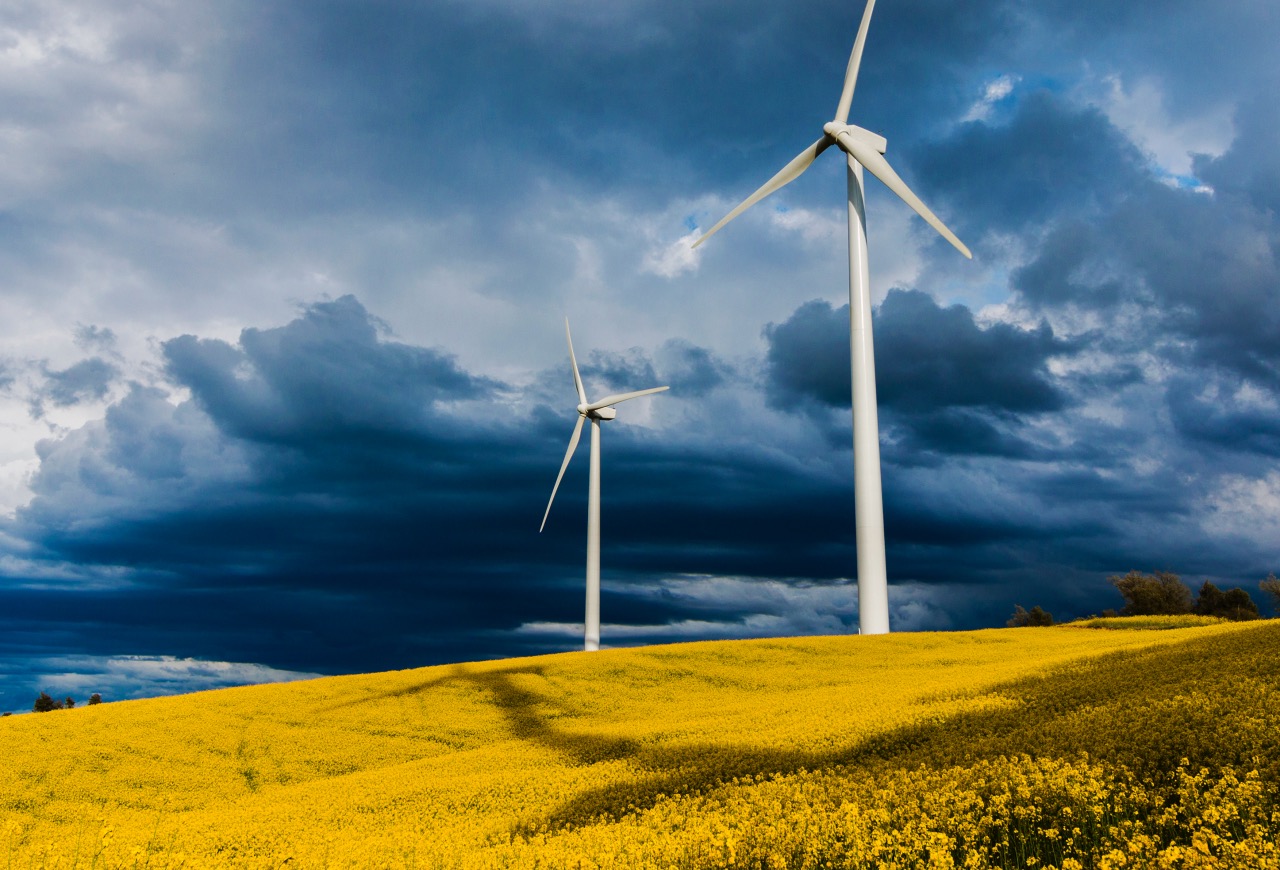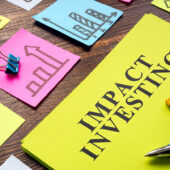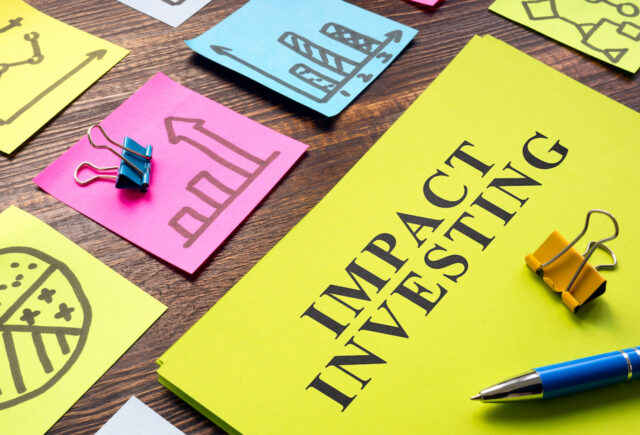Russia’s invasion of Ukraine has intensified the debate around the sustainability, affordability and security of Europe’s energy sector. From the need to accelerate the energy transition to discussions about nuclear power, investors have a crucial role to play

In brief
- The war in Ukraine has triggered soul-searching over what should constitute a sustainable investment
- Reducing dependency on Russian oil and gas without diverting from the net zero agenda is at the top of investors’ minds
- Prospects for the renewable energy sector remain strong, driven by policy and cost competitiveness
- Debate around the role of nuclear power in the decarbonisation agenda has intensified
The impact of Russia’s invasion of Ukraine on Europe has triggered soul-searching over what should constitute a sustainable or impact investment, given shifting economic priorities, and whether blanket divestment from Russian companies is the best response from an ESG perspective.
Much of the debate is focused on the energy sector, where quick fix alternatives to the Russian oil and gas on which much of Europe relies are now being touted as responsible investment targets, whatever their role in combating climate change, the environmental risks or cost implications.
Anything that reduces energy dependence on – or capital flows to – Russia and brings down soaring energy costs could be considered to be responsible investment, runs the argument.
Nuclear power is being heavily promoted again by proponents as a way to replace gas as a base-load power provider to complement renewable energy.
A case is also being made for counting funding for liquefied natural gas (LNG) import terminals as responsible investment, given gas imported by sea from the US and elsewhere reduces dependence on Russian supply.
Oil and gas companies are once more vociferously making the case for increasing production – and exploration – in the North Sea for a similar reason.
Different views on nuclear
In Germany – dependent on Russian gas for more than half its gas imports before the Ukraine invasion – some lawmakers have called for a reversal of the country’s wind down of its remaining nuclear power plants.
That’s a view shared by 53% of the German public, according to a recent poll – a shift in public opinion from a strongly anti-nuclear stance in the past.
The German Chancellor Olaf Scholz is against extending the life of nuclear plants, favouring investment in LNG terminals instead.
In the UK, the government’s new energy strategy includes plans to build eight new nuclear reactors by 2030. France is also considering slowing down the contraction of its nuclear power sector.
Meanwhile, oil companies have welcomed the UK’s plans to hold a licencing round for a new wave of North Sea oil and gas projects, which the government say is aimed at improving energy security by displacing imports, rather than boosting fossil fuel consumption.
The idea is that all this should happen alongside rapid expansion of renewable energy – mainly solar and wind power – enabling European countries still to meet ambitious carbon emissions reduction targets.
Renewables investment challenge
But, is there a danger that the investment requirements of boosting non-Russian gas supply, or the huge upfront costs of building more nuclear power plants, could divert public and private investments away from renewables?
“Most forecasts still have nuclear playing only a minor role in the green transition, possibly as one option to deal with renewable intermittency issues. Broader questions around safety continue to dog wider spread adoption globally, but in the short-term at least, other countries may follow the UK in allowing energy security to trump efforts to decarbonise,” Eoin Murray, head of investment, at Federated Hermes said.
Despite the uncertainty, investment managers targeting renewable energy are upbeat about the sector’s prospects, in part because wind and solar are already integrated into European energy strategies, but also due to another key factor – cost.
Renewable energy costs were often on a par with or lower than those of fossil fuels and nuclear power prior to the invasion of Ukraine, depending on the location.
With oil trading at well over $100 a barrel and gas prices on the Dutch TTF exchange more than four times higher than they were in April 2021, partly due to the impact of the invasion, the economics have moved further in favour of renewables – even allowing for increased costs of materials, such as concrete, steel and copper.
“It is getting more costly to construct and operate a solar or wind energy plant, but power prices are increasing, and revenues have improved. So, right now is actually a really good time to be operating a renewable energy plant,” Michael Ebner, managing director and head of sustainable infrastructure at German-based KGAL Investment Management, tells Impact Investor.
He says that although power prices are likely to fall from their peaks, he expects them to remain higher than they were prior to the invasion of Ukraine for the long-term.
“This will enable renewables to be more competitive, even in countries like Germany, where we do not have such high yields from our natural resources compared to southern Europe for solar power, or northern Europe for wind,” he says.
Rapid expansion of renewables should be regarded as the main plank in Europe’s drive to improve energy security, and not just as a climate change measure, according to Ebner.
Extending the life of nuclear power plants may be a temporary solution to oil and gas supply shortages, but the technology would prove too expensive and take too long to build to attract investment to new projects, he says.
KGAL launched its first renewable energy impact fund last year and said in December it had raised €260 million by first close. The firm hopes to start fundraising later in 2022 for another fund targeting investments that help integrate intermittent renewables into energy supply, such as hydrogen production, electric vehicle infrastructure, and power-to-heat systems.
Divestment vs engagement
The energy sector has also been a focus for European investors keen or under pressure to break ties with Russia.
Western companies have been divesting or distancing themselves from Russian companies, either in support of western sanctions, or due to the impact of those sanctions on their ability to trade with Russia.
Major investors such as BP have made the headlines – the London-based oil company said in February it would sell its 19.75% voting stake in Russian state-controlled energy giant Rosneft and that BP chief executive Bernard Looney would resign from the Rosneft board.
Fellow energy firms Shell and Equinor have also announced divestments of their Russian operations.
But some in the impact investment sector believe divestment from Russia should not be the default position for those seeking to make a difference in terms of ESG in the country.
Tenke Zoltani, founder of Swiss-based advisory firm Better Finance, told Impact Investor that these divestments meant a lever of western influence over Russian corporate life have been removed.
“By cutting and running at this stage, their means of re-entry into the Russian market is going to be very difficult. I think they lost a very coveted position in terms of being able to be a change-maker and driver of positive impact locally,” she says.
The same applied to European pension funds considering whether to sell their Russian investments, Zoltani says. They would lose their ability to influence the direction of ESG policy within Russian companies, and risked being replaced by less scrupulous investors – as well as potentially making a loss on any fire sale of their investments.
“We should talk more about other approaches, such as greater engagement and active ownership. We need to target companies open to change,” she adds.





